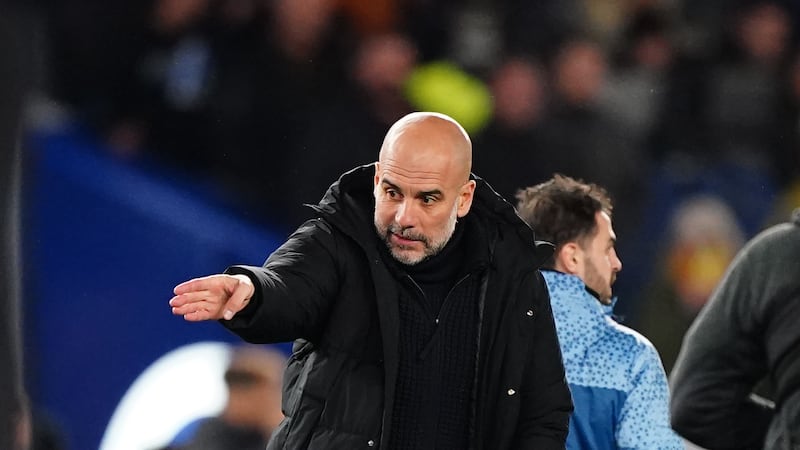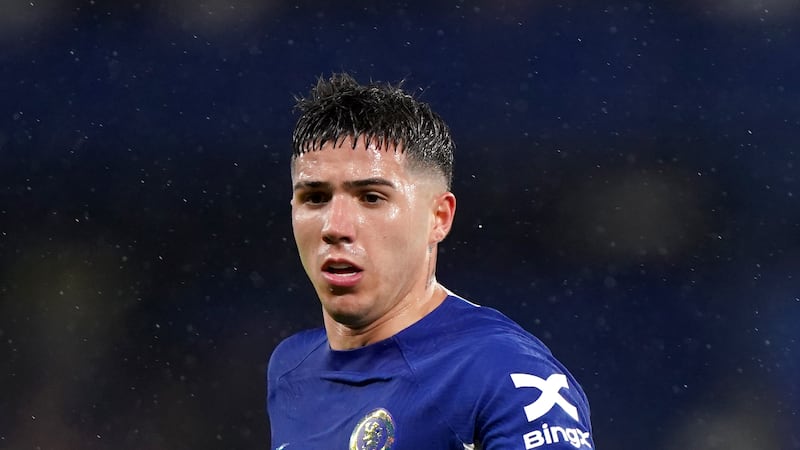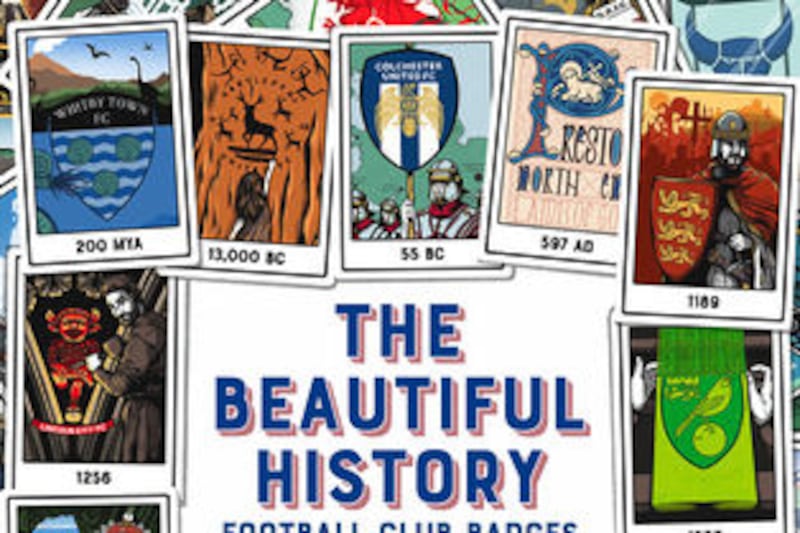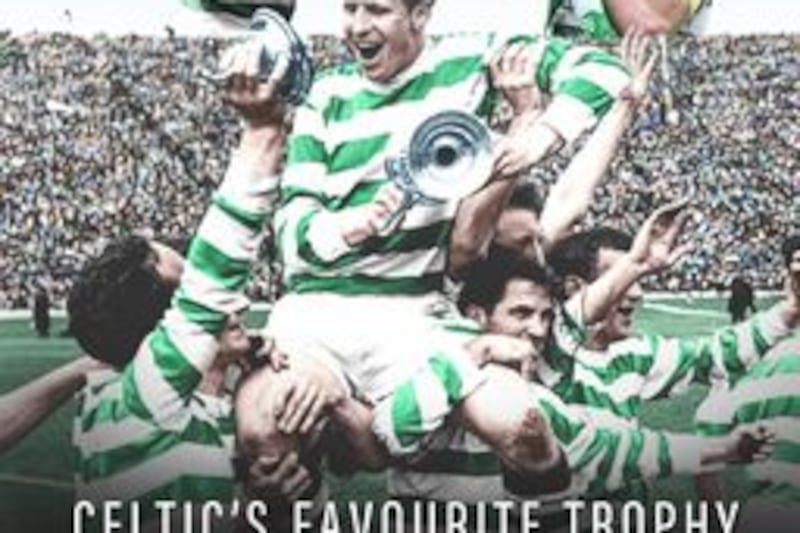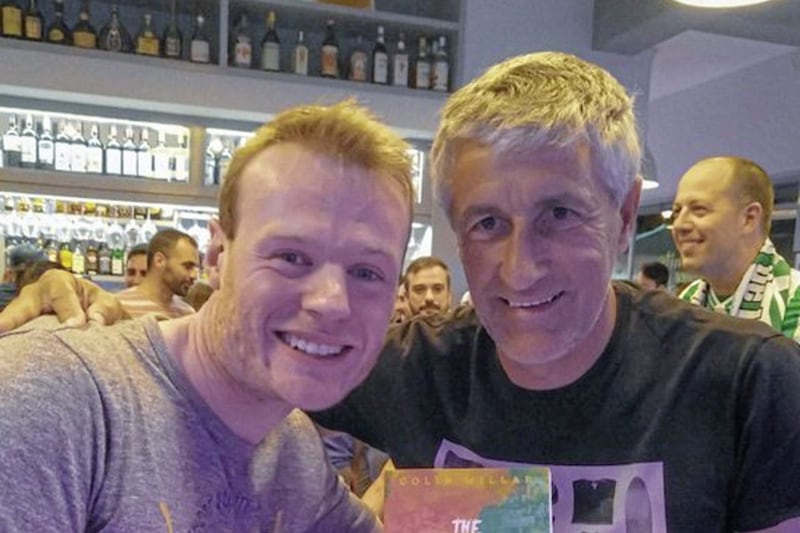The Undisputed Champions of Europe: How the Gods of Football became European Royalty (by Steven Scragg, Pitch Publishing, 320pp, RRP £16.99 hardback)
Watch the Throne: The tactics behind the Premier Leagure's European Champions (by Luke Williams, Pitch Publishing, 320pp, RRP £12.99 paperback)
IN one sense, these books are two sides of the same coin; in another, the latter is all about the coin.
Steven Scragg's history of the European Cup proper covers the period from the competition's inception in 1955 up until 1992, after which it morphed into the 'Champions League'.
Ironically, up until then it had almost entirely been a competition for champions only, either of domestic leagues or as the European Champions/ holders. There were exceptions such as Chelsea not being allowed to represent England in the inaugural tournament, after which the Stamford Bridge club had to wait for half-century - and the huge financial input of Roman Abramovich.
The great Matt Busby refused to be cowed by the Football Association, taking Manchester United into Europe, and on to becoming England's first winners in 1968, a decade after they might have won it if not for the Munich Air Disaster.
Celtic famously became the first British winners in 1967, making Jock Stein and his players 'immortal', according to Bill Shankly. The latter never succeeded in leading Liverpool to lift 'Old Big Ears', although his successor Bob Paisley won it three times.
Celtic broke the stranglehold of southern Europe, first Spain's Real Madrid, then Portugal's Benfica, followed by both Milan clubs - with Stein's men thrillingly defeating the 1964 and '65 winners Inter.
The Hoops did so with a bravura attacking display, but Scragg points out that they were very defensive on their travels, as was often the way in those days.
Scragg has obviously researched match reports and re-watched many games, such is the level of detail involved, although all the facts and insights are presented in a light, readable prose.
His own club Liverpool did achieve the first of four successes in 1977, eventually meaning - spoiler alert - the Anfield club won as many as all the other English clubs put together, even though there were unexpected successes for both Nottingham Forest (twice) and Aston Villa.
Scragg's love for this tournament is evident; indeed he reveals that a head injury sustained in his early 20s 'means there is a part of my brain that is perpetually locked in 1992'.
Yet even without that reason any competition which brought winners from Scotland, Romania, and Yugoslavia/ Serbia, as well as finalists from Greece, Belgium, and Sweden has merits which the so-called Champions League lacks.
The completion of a trilogy which also detailed the European Cup-Winners' Cup ('A Tournament Frozen in Time') and the Uefa Cup's glory years ('Where the cool kids hung out'), this completes an indisputably perfect hat-trick by that man Scragg.
The Champions League has led to greater dominance by 'the big five' leagues - Spain (11 wins), England (6), Italy (5), Germany (4), and France (1), and although there have been winners from the Netherlands (Ajax, 1995) and Portugal (Porto, 2004). Tellingly, though, no other countries have even been represented in Champions League Finals.
A cloud still hangs over the only French winner, Marseilles in the inaugural Champions League season of 1992/3, due to their domestic match-fixing, and Paris Saint-Germain's Qatari multi-millions haven't managed to buy the trophy - not yet anyway.
Chelsea's influx of roubles eventually led to their first triumph in 2012, then again earlier this year, denying another 'petro-club' in Manchester City.
Interestingly, both Chelsea's triumph's were achieved under managers brought in during that season, although the print deadline of this book means their success in May is not analysed here.
Williams, a coach and analyst, looks at the two trophies won by Manchester United under Alex Ferguson - the astonishing comeback win over Bayern Munich to complete the treble in 1999, then the penalty shoot-out victory over domestic rivals Chelsea nine years later.
He also assesses the major matches en route to Liverpool's 'miracle of Istanbul' in 2005, a campaign which owed so much to the tactical brain of Rafa Benitez, then their sixth success overall under Jurgen Klopp two years ago - also against another English team, Tottenham Hotspur.
Chelsea's 2012 win under Roberto di Matteo had echoes of Liverpool 1984 (at the home of their opponents), Manchester United 1999 (a late leveller), and both Liverpool 2005 and United 2008 (winning via a penalty shoot-out).
Williams's updated take on how Pep Guardiola messed up this year's final against Thomas Tuchel would be worth reading - but even without that this book is worth the interest of football fans, especially those absorbed by tactics.
/////////////////////////////////////////////////////
Liddell at One Hundred: A family portrait of a Liverpool icon (by Peter Kenny Jones, Pitch Publishing, 288pp, RRP £19.99)
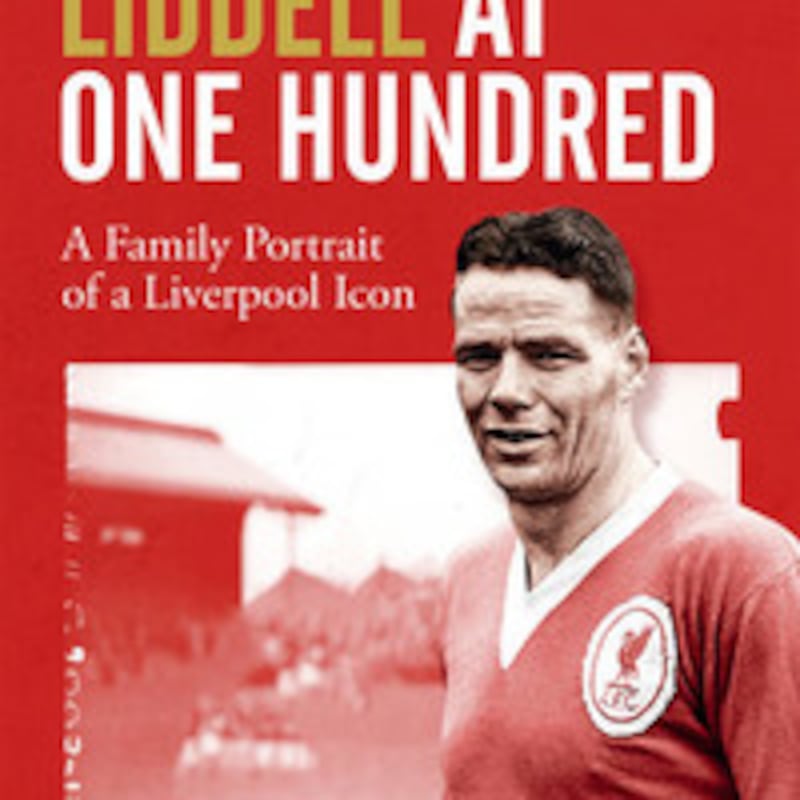
Long before 'Arsenal Wenger' there was 'Liddellpool'. The publication of this tribute is very timely: it will be a century since Billy Liddell's birth come January 10th next year; he became the oldest post-War outfield player 60 years ago, aged almost 39; and he passed away 20 years ago, in July 2001.
He scored 228 goals for the Reds, in 534 appearances between 1938 and 1961, helping them to win the League title in 1947 and to the FA Cup Final in 1950, the latter ending in disappointing defeat against Arsenal.
Yet Liddell's career was largely spent in the Second Division; even worse, the Second World War took seven years out of his career, having served as a navigator in the RAF. During that time he appeared for Linfield, having agreed to do so, despite former Reds great Elisha Scott asking him to feature for Belfast Celtic.
Signed for the Reds on the recommendation of their half-back Matt Busby - whatever became of him? - Liddell turned professional in 1939…and made his debut in the FA Cup in January 1946. He scored. Of course.
Although aged only 27, the author is a keen football historian and writer, and an avid Liverpool FC fan, who describes Liddell as "the Steven Gerrard figure of that era" - an in-demand player who stayed with a largely under-performing club.
Never booked in his career, Liddell was revered around England, and beyond. Only one other player shared his honour of representing Great Britain more than once, in 1947 and 1955 - the great Stanley Matthews.
He was even repeatedly approached to move to Santa Fe in Colombia - a country which had pulled away from Fifa and was paying players huge wages - yet he stuck by his family and his club.
With forewords from three other long-serving Liverpool legends, Ian Callaghan, Alan Hansen, and Jamie Carragher, Jones has captured the life and career of a wonderful man and footballer, ensuring that Liverpool and Scotland supporters of all ages can appreciate how they should raise a glass to William Beveridge Liddell.
////////////////////////////////////////////////////////////////////
The Untouchables: Anfield's Band of Brothers (by Jeff Goulding and Kieran Smith, Pitch Publishing, 288pp, RRP £19.99)
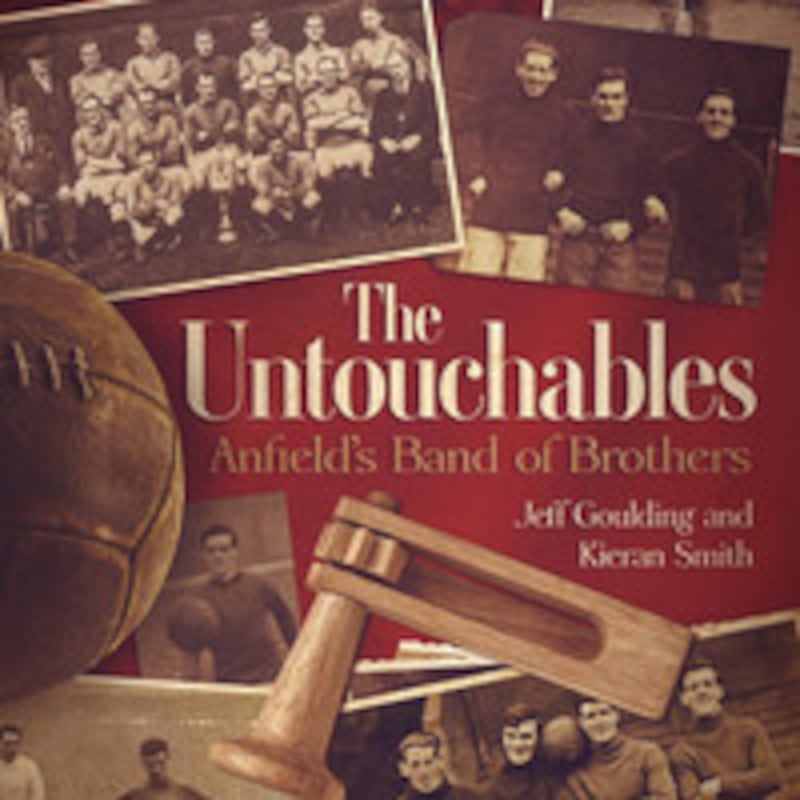
Not yet another book about the current Klopp crop, but an account of the creation of the Liverpool side immediately after the First World War which went on to win the club's third League title in 1921-22 - and then retained the crown.
The cast of characters includes Belfast-born goalkeeping icon Elisha Scott, a former boxing champion of India in Jock McNab, Wexford-born former Evertonian Bill Lacey, and the only ever-present in both triumphant campaigns, Tom Bromilow.
All banded together under the management of the mysterious David Ashworth, who strangely left Anfield in February 2022 to take over his former club Oldham Athletic - who were bottom of the table and ended up relegated, with the Reds as champions.
Author Goulding and football historian Smith have collaborated on a fine, detailed re-telling of those times, packed with terrific photographs, many of them colourised.

